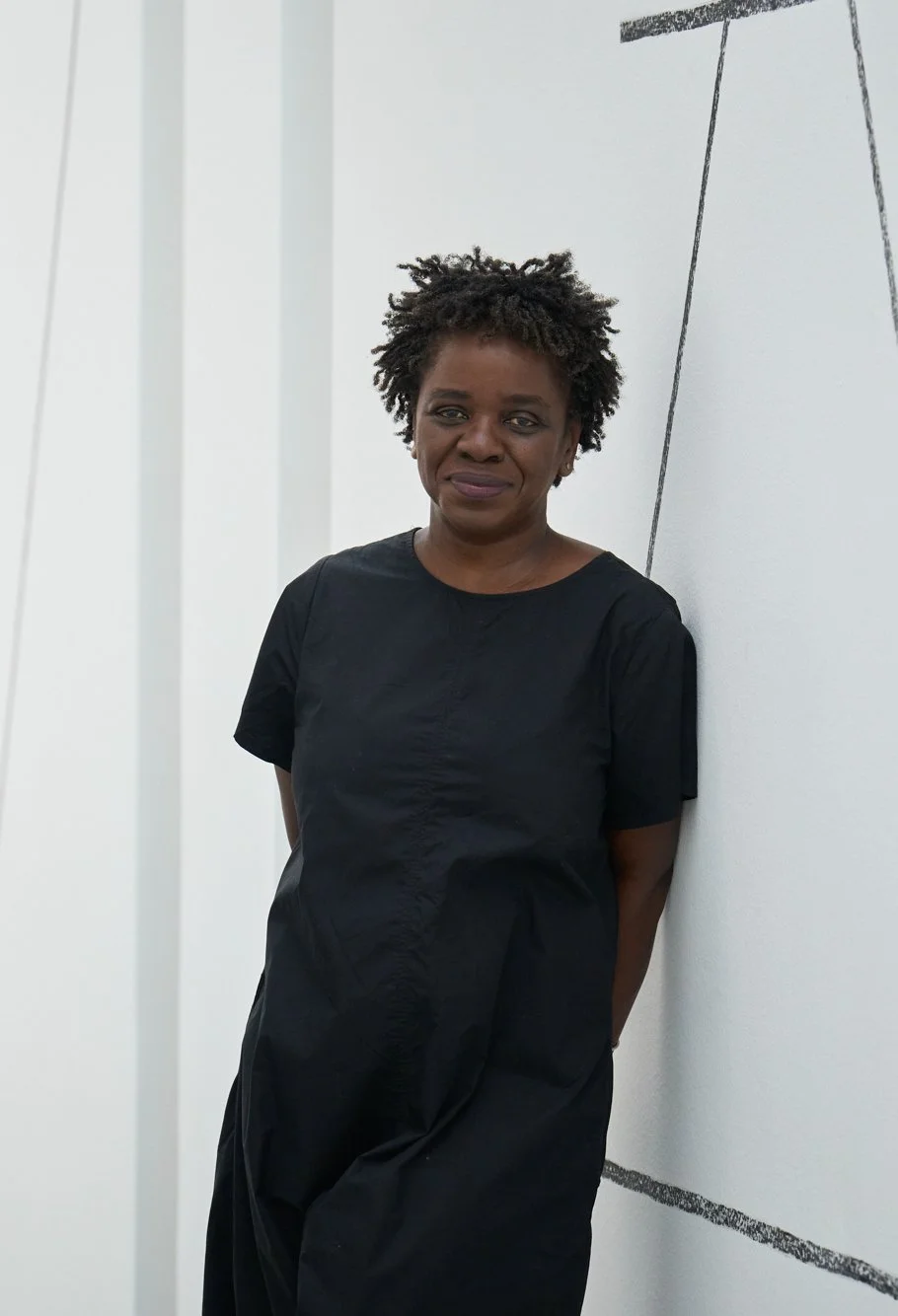About
Denise Ferreira da Silva and Arjuna Neuman, 4 Waters: Deep Implicancy (still), 2018. Film. Photo: Courtesy of the artists.
The CRACS Co-Lab is a collective feminist intellectual hub for faculty and graduate students whose research focuses on global colonial and racial power and anti-colonial transformation. The Co-Lab hosts conversations, experimentations, explorations oriented towards a global approach to questions of colonial and racial subjugation. Moving beyond the confines of Areas Studies and U.S. Ethnic Studies paradigms, our Co-Lab supports critical interventions that attend to the inseparability between racial-ethnic and caste subjugation nationally, regionally and globally across historic and contemporary geopolitical configurations of colonial subjugation.
Through this global prism, our Co-Lab offers a space to develop interdisciplinary research between U.S. based academics and scholars and interlocutors in the Global South–whether academics, artists and media-makers, or activists and policy-makers, whose work focuses on critical racial and anti-colonial analyses and interventions. We are interested in interrogating the trajectory of capitalism in the 21st century, and related political, economic, environmental, and humanitarian crises.
Our Co-Lab will host a series of interdisciplinary reading and study groups, workshops and residencies, that address three specific themes that have become key to critical thinking about capitalism in the last 15 years or more: debt, reparations and rebelry.
The CRACS Co-lab is supported by the Departments of Spanish & Portuguese and Media, Culture & Communication at New York University, the NYU Center for Faculty Advancement (CFA), the NYU Institute of Human Development and Social Change (IHDSC), and the Mellon Grant.
Denise Ferreira da Silva
Co-Director
Denise Ferreira da Silva is the Samuel Rudin Professor in the Humanities in the Department of Spanish & Portuguese at New York University. An academic and an artist, Dr. Denise Ferreira da Silva writes on crucial global issues, which she approaches from an anticolonial black feminist perspective. A prolific author, her field-changing books – such as Toward a Global Idea of Race and Unpayable Debt — have been published by major presses. Her several articles have been published in leading interdisciplinary journals, such as Social Text, Theory, Culture & Society, Social Identities, PhiloSOPHIA, Griffith Law Review, Theory & Event, The Black Scholar, to name a few. Her artistic works includes the films Serpent Rain (2016) and 4Waters-Deep Implicancy (2018), Soot Breath/Corpus Infinitum (2020) in collaboration with Arjuna Neuman; and the relational art practices Poethical Readings and Sensing Salon, in collaboration with Valentina Desideri. She has exhibited and lectured at major art venues, such as the Pompidou Center (Paris), Whitechapel Gallery (London, MASP (Sāo Paulo), Reina Sofia (Madrid), The Belkin (Vancouver), Guggenheim (New York), MACBA (Barcelona), and MoMa (New York) as well as 10th Berlin Biennial, Document14, 2022 Singapore Biennial. She has held Visiting Professorships at major universities, such as University of Pennsylvania, New York University, University of Toronto, Universidade de São Paulo, University of Copenhagen. She held the 2023 International Chair in Contemporary Philosophy at the Department of Philosophy at the University of Paris 8.
She is a member of several boards, including the Third Text editorial collective, the Advisory Board for the International Consortium for Critical Theory Programs and the editorial boards for journals Postmodern Culture, Catalyst, Social Identities, and Dark Matter.
Paula Chakravartty
Co-Director
Paula Chakravartty is the James Weldon Johnson Associate Professor of Media Studies at New York University. She is the Co-Director of the Critical Racial Anti-Colonial Study Co-Lab at NYU, and the editor of the journal, Communication, Culture and Critique.
Her research and teaching interests span comparative political economy, media and democracy and social movements through the study of colonial and racial power. She has published widely in numerous leading journals across disciplines including American Quarterly, Antipode, Economic and Political Weekly, The Journal of Communication, Media Culture and Society, International Journal of Communication, Political Communication, among others. Her books include Race, Empire and the Crisis of the Subprime (Co-edited with Denise Ferreira da Silva with Johns Hopkins University Press, 2013), Media Policy and Globalization (Co-Authored by Katharine Sarikakis with Edinburgh University Press, 2006), and Global Communications: Towards a Transcultural Political Economy (Co-Edited with Yuezhi Zhao with Rowman &Littlefield Publishers, 2008). She is currently working on a monograph on Media and Economic Violence and a co-authored manuscript on Media, Race and and the Infrastructures of Empire (with Miriyam Aouragh).
She is involved in several on-going collaborative projects. These include a field-based partnership research project, funded by the SSHRC (co-PI Professor Michelle Buckley), on migrant mobility and debt in Uttar Pradesh, India, with Chambal Media/Khabar Lahariya.
Lee Xie
Postdoctoral Fellow
Lee Xie is a Provostial & CRACS Postdoctoral Fellow in the Department of Spanish & Portuguese at New York University. An interdisciplinary scholar, she researches and teaches on contemporary Asian diasporic cultural production in the Global South, with a focus on contemporary art, performance and aesthetics. Her dissertation, "Opaque Entanglements: Reparative Memories of Chinese Diasporas in Latin America & the Caribbean (2008-2024)," analyzed memory-making practices in a recent body of work by Asian diasporic feminist writers and artists, showing the links between Asian diasporic memory, identity formation, and racialization through form and affect. She has received research fellowships from the NYU Graduate School of Arts & Sciences and the NYU Center for the Humanities. With a public-facing and experimental research practice across fields and disciplines, she has been a grant awardee and collaborator on Public Humanities projects and interdisciplinary research labs including the ZIP Code Memory Project: Practices of Justice and Repair (housed at the Columbia Center for the Study of Social Difference and funded by the Henry Luce Foundation), the Cross/Currents H-Lab, funded by the NYU Center for the Humanities, and the Critical Racial Anti Colonial Study Co-Lab. She has published in academic and artistic venues such as CUNY FORUM and Contemporary And América Latina and presented her work internationally at conferences and institutional contexts including Tate Britain. She holds a Ph.D. in Spanish language & literatures from New York University.
Mary Ainomugisha
Research Assistant
Mary Ainomugisha (she/they/any) is a doctoral student in the Department of Media, Culture, and Communication at New York University. Their research broadly attends to the entanglements of East African migrant domestic workers from Uganda and Kenya within global labor supply chains, primarily to the UAE, Saudi Arabia, and other Gulf Cooperation Council (GCC) states, through conceptual threads of political economy, mobile infrastructures, social reproduction, and critical race, geography, and migration studies. Their MA thesis (from MCC) explores the possibilities and absences of media infrastructural interventions in the experiences of migrant domestic workers. This field research was supported by the NYU Migration Network, where she was a 2023-24 graduate student fellow. Ainomugisha also serves as an editorial assistant for the Communication, Culture & Critique (CCC) Journal.
Diane Lima
Pre-Doctoral Mellon Fellow
Diane Lima is a curator, researcher, and one of the leading voices of Black feminism in Latin America. She holds a master's degree in Communication and Semiotics from PUC-SP and is a Pre-doctoral Mellon Fellow affiliated with the Critical Racial Anti-Colonial Study Co-Lab (CRACS Co-Lab) in the Department of Spanish & Portuguese Languages and Literatures at New York University.
Most recently, she has organized choreographies of the impossible, the 35th São Paulo Bienal (2023), Paulo Nazareth: Luzia at Museo Tamayo in Mexico City (2024), The River is a Serpente, the 3rd Frestas Triennial of Arts (2020/2021), and the two-year program Absent Dialogues at Itaú Cultural (São Paulo, 2016–2017), which played a historic role in shaping the Brazilian anticolonial turning point in contemporary art.
In 2025, Lima was appointed as part of the Scientific Advisory Board of documenta and MuseumFridericianum gGmbH in Germany, where she currently serves as Deputy Chair. She is also the Programming Director for the ESAP Fellowship 2025, an initiative led by the A&L Berg Foundation that provides professional development to curators.
In 2024, Lima was a Guest Professor at the Institute of Aesthetic Research of the National Autonomous University of Mexico (UNAM). She is the recipient of a 2021 Ford Foundation Global Fellowship, a program that celebrates the next generation of social justice leaders worldwide.
Lima edited the critically-acclaimed anthology Negros na Piscina: Arte Contemporânea, Curadoria e Educação (Blacks in the Pool: Contemporary Art, Curatorship and Education) (Fósforo, 2024), which chronicles the last ten years of the debate around raciality and art in Brazil. She also co-edited the volume Textes à lire à voix haute (Texts to read aloud), which united anticolonial dissident voices across Lusophone-Francophone contexts (Brook, 2022).





